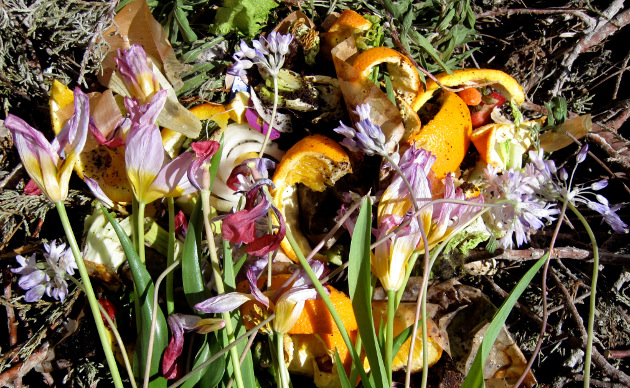You rinse your plastics and toss them into recycling bins. You sort your magazines so they may later be repurposed as recycled paper. You even purchased a reusable water bottle. But is that enough?
The good news is that you’ve taken important steps to make a difference for the environment. The even better news is that you can do more, and it won’t take much extra time or effort.
Composting enables you to turn your organic waste—items such as fruit peels, food scraps, coffee grounds, leaves, and more—into a resource that can help nourish your soil and spruce up your yard. When thrown into an oxygen-deprived landfill, the very same items break down slowly and produce methane, contributing directly to global warming.
Composting requires aeration, which supplies oxygen for the decomposition process. As it decomposes, your waste heats up, breaks down, and develops beneficial bacteria and fungi, excellent byproducts for growing healthy plants. Compost is great for your garden because it helps improve the structure of the soil so that it can better retain water. It also contains nutrients, so it supports plant health when mixed with garden soil, added to potted flowers, or incorporated into raised beds. “Why waste something the earth already spent time and energy growing?” says Lee Meinicke, co-founder of Philly Compost, which provides composting-related services for businesses in the Philadelphia area. She believes that composting is the easiest thing you can do to make a difference. Start this fall by gathering your dried leaves—these, along with newspapers, wood scraps, paper waste, dead flowers, and other organic matter, are considered “browns.” On about 9 square feet of land, surround a heap of organic, compostable materials with inexpensive fencing to keep out uninvited animal guests, or place your items into a garbage can that is drilled with holes. Then alternate layers of browns with layers of “greens,” which include your vegetable debris, grass clippings, weeds, egg shells, coffee grounds, and tea bags. Always keep a layer of browns on top of the pile.
Start this fall by gathering your dried leaves—these, along with newspapers, wood scraps, paper waste, dead flowers, and other organic matter, are considered “browns.” On about 9 square feet of land, surround a heap of organic, compostable materials with inexpensive fencing to keep out uninvited animal guests, or place your items into a garbage can that is drilled with holes. Then alternate layers of browns with layers of “greens,” which include your vegetable debris, grass clippings, weeds, egg shells, coffee grounds, and tea bags. Always keep a layer of browns on top of the pile.
Periodically add oxygen by using a shovel or pitchfork to turn and aerate the pile, rotating items from the center to the outside of the pile. This will help the waste break down. Keeping pieces small will speed up the process. Avoid adding meat and dairy products to home compost piles, as these can decompose slowly and attract animals, Meinicke says.
If you don’t have outdoor space, your township or county may have a drop-off location that accepts compostable items you’ve collected inside your home. For shared spaces such as offices or apartment complexes, consider working with management to gather information on composting, pricing, and logistics. Or search for a community garden that accepts donations to its compost pile.
Visit ansp.org for more sustainability tips!
This article by Mary Alice Hartsock was adapted from the Fall 2013 issue of Academy Frontiers. Reviewed by Lee Armillei of GreenWeaver Landscapes and Lee Meinicke of Philly Compost.

